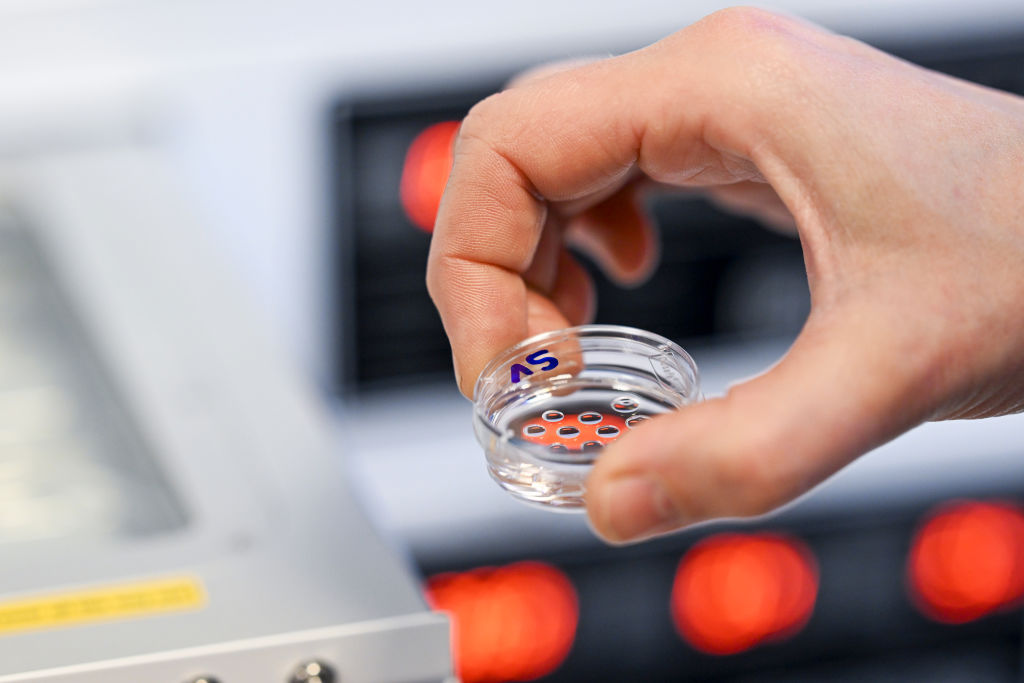After six years of suffering from infertility that doctors couldn’t explain, Michelle R. was ready to take more desperate measures. She had already given birth to two sons who were conceived naturally, but now, at thirty-two and yearning for a third child, she began in vitro fertilization (IVF) at a Texas clinic.
There reproductive endocrinologists stimulated her ovaries with hormones to produce many eggs that would then be fertilized in a lab with her husband’s sperm. The resulting embryos would be returned to her womb where, with luck, one would develop into a viable pregnancy and a healthy baby.
Success in any pregnancy depends on the embryo, and the fertility doctors at Michelle’s clinic strongly advised her to opt for an increasingly popular add-on procedure called Preimplantation Genetic Testing for Aneuploidy, or PGT-A. For an extra fee, the IVF clinic would send her embryos to a special lab for testing to determine if they were chromosomally normal (euploid) and likely to result in healthy pregnancies or chromosomally abnormal (aneuploid), which would likely result in miscarriage or a baby born with certain disorders, many incompatible with life.
“The doctors said that PGT-A would give us a better chance of success, and a better chance of resulting in a healthy baby,” said Michelle, who, like several other women quoted in this story, asked not to use her last name to protect her privacy.
But the procedure isn’t cheap, and it isn’t certain. PGT-A can cost over a thousand dollars per embryo, on top of the price of an IVF cycle, which averages more than $23,000 in the United States. In an opinion published in the Journal of Assisted Reproduction and Genetics in January, experts estimated that young, healthy women…
Auteur: Amy Klein

